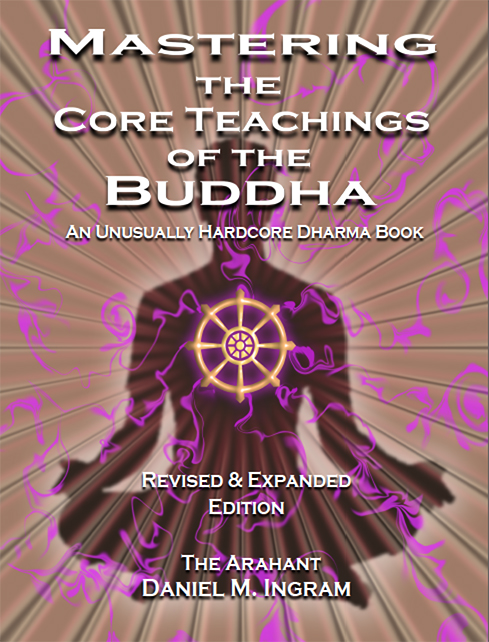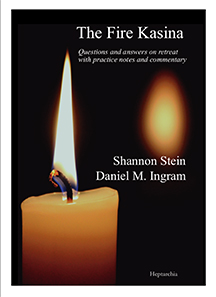6. Fear
← 5. Dissolution, Entrance to the Dark Night | 7. Misery →
The clarity and intensity begin to return, but now the stage of Fear can involve all sorts of frightening distortions of perception when sitting, accompanied by intense feelings of unease, paranoia, terror, dread, and/or “the willies”. It can even sometimes seem that our body is falling in tatters through the floor or that we are rotting away. If we have strong concentration tendencies, we may see horrifying or gruesome visions. Vibrations from here on out should no longer change frequency with the phase of the breath as they did in the A&P and, for the next few stages, vibrations tend to be slower than those in the A&P. Nightmares are substantially more common in this stage.
The degree of fear that people experience in Fear can vary quite widely. Some people can suddenly experience extremely powerful feelings of abject terror for no obvious reason at all, but the mind has this odd tendency to create stories to explain how we are feeling, to fabricate things to be suddenly afraid of, even if those explanations and rationalizations are not the cause at all and arose after the fact of the terror setting in. Just feeling terror without an object can be very disorienting. As an example, I had a friend that hit this stage on a retreat in Asia at a center that was not very accommodating of his vegetarianism. He began to imagine that he would suddenly die of starvation and so left the retreat. That is a very classic Fear stage behavior.
Strangely, Fear can also be exhilarating in the ways that a horror movie or riding a roller coaster at night can be. I am a bit of an oddity, I think, in that I enjoy this stage, but then I also practice emergency medicine, a job that basically involves some real love of adrenaline and grisly things, and the stage of Fear can provide those in abundance at times. For most people, however, the thrilling or exciting side of this stage tends to be greatly overshadowed by the dark side, and most people don’t appreciate Fear in that way.
The duration of Fear, like the other stages, varies widely. I know people who have barely noticed it and gone through it in minutes. I know a few others who had it kick their butt for years, flooding them with dysfunctional panic that totally derailed their lives, though all these were people who didn’t know what the stage of Fear was and didn’t have good instruction about what to do with it or how to relate skillfully to it. Both are extremes and atypical. For most, it lasts hours to days when learning to go through it, and many get through it moderately well. Still, some people who are otherwise smart, previously well-adjusted, and capable people will find it deeply taxing, and I do not know exactly why some people have such a hard time in it while others don’t. Traditionalists will generally say “karma”, as if they understood that very thoroughly, but we must admit at this point that the exact science of the stages of insight, their biochemistry, and other exacerbating and moderating factors is a mystery.
Reality testing, noticing that we are generally in a safe place (assuming we are, and not in a war zone, running for our lives), have access to food, water, and shelter, and that we are okay: these can help a lot. Grounding attention in trying to gently synchronize with the sensations of things vanishing, falling away, and shifting can help. It is very important to recognize that Fear is not dangerous unless we make it so. The classic quote, “We have nothing to fear but fear itself,” is of relevance. If we fear the fact of fear, indulging in telling ourselves stories about it, we can amplify this stage. If we ride it, flow with it, welcome it, dive down into it, play with it, revel in it, dance with it, and dissolve with it, letting it tear down the illusion of permanence and control as it begins to do so, we can appreciate that this is the third vipassana jhana, which can be a fascinating meditation adventure given the right attitude.
Regardless, Fear is part of the Whole Person Tour that these stages take us through, in which we are being given the opportunity to accept the full range of our lives here as they are and recognize the awakeness of every type of experience. Acceptance, honesty, and clear, precise awareness of the true nature of the actual sensations that make up all of this are the key in all the Dark Night stages, as before. The six sense doors and the three characteristics are the basis of great insight practice in this stage and all the rest. On the mild side, this stage might manifest as just a slightly heightened sense of nonspecific panic or anxiety. As Fear passes and our reality continues to strobe in and out and fall away, we are left feeling …

